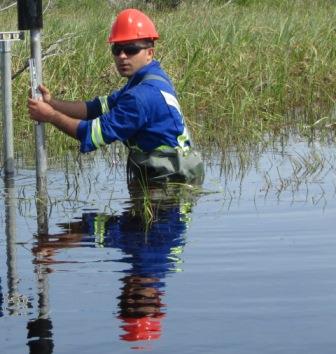Biography:
Mr. Abadzadesahraei is a PhD candidate and researcher at the University of Northern British Columbia (UNBC). Sina completed his master’s degree in water resources at the University of Algarve, Portugal, and received his bachelor’s degree in Agricultural Engineering (Branch of Irrigation) from Iran University. He has been involved with numerous municipality projects as an Advising Green Space Engineer designing green space for public recreation areas and gardens. Sina moved to Canada in 2012 and has been involved with various researches and has held several positions. Sina joined an environmental consulting company as an environmental scientist for one year. He has had the opportunity to work on numerous environmental site assessments, primarily at upstream and downstream petroleum facilities, but also on several residential, commercial, and industrial lands.
In 2013, Sina joined the Northern Hydrometeorology group (NHG). He has been involved with several projects. He has been investigating the water budget of Coles Lake, in northeastern BC. This work has been conducted in close collaboration with an industrial partner (Quicksilver, an oil and gas company) and the BC Ministry of Forests, Land, and Natural Resources Operations. This research aims to determine what amount of water can be safely extracted from Coles Lake for hydraulic fracturing (“fracking”) by our industrial partner without damaging the environment. Further to this, Sina has been subcontracted to conduct field experiments at Coles Lake with the support of the BC Oil and Gas Commission. This experience has provided him with a strong skill set in the fields of hydrometeorological data acquisition and analysis, computer programming and statistics, preparation of technical reports, and use of state-of-the-art field equipment and data loggers.
Furthermore, Sina’s widespread academic and research background as well as his extensive field experience, have provided him with a solid understanding of behaviour-based safety awareness, program implementation, and insight into quality data collection. Sina has been involved in many high quality professions that emphasized strict confidentiality and professionalism such as the Director of Students Affairs and the PhD representative in the Graduate society at UNBC. His research interests involve studying hydrology, watershed management and surface and ground water modelling. He has had several full teaching assistant and lab instructor positions at UNBC. Sina is not only active in academics, as he is also the karate instructor at the Northern Sport Centre.
